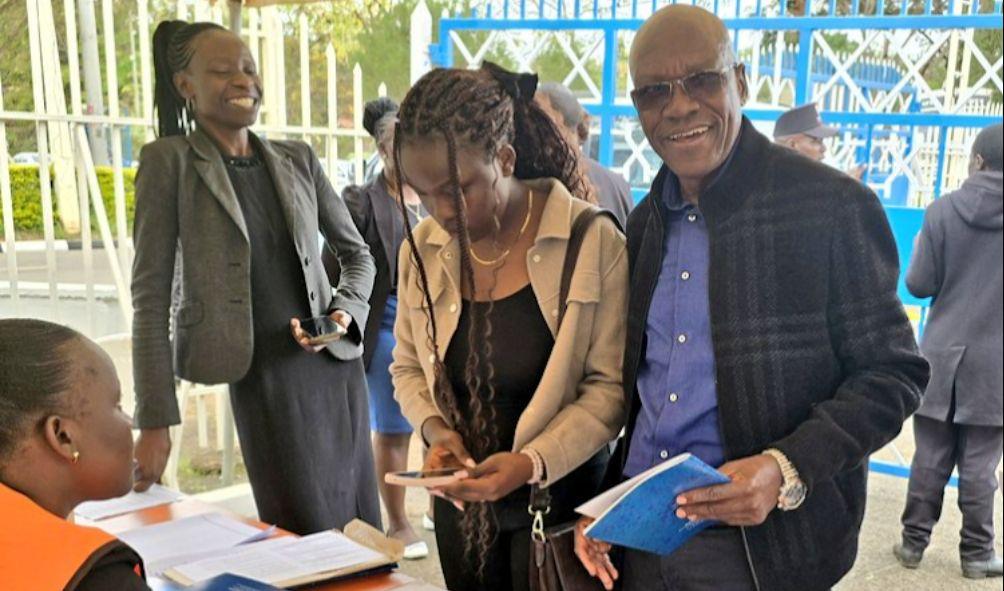Khalwale Trashes New Funding Model as He Admits Daughter at KU
The university funding model promoted by President William Ruto, which is being hailed as a major step toward equitable access to higher education across all economic levels, is facing growing criticism.
This model categorizes students into five distinct groups, assigning different fee responsibilities according to their financial needs, and providing greater loans and scholarships to the most disadvantaged.
However, detractors argue that the model lacks transparency, especially after reports surfaced of families claiming their children were wrongly assigned to higher fee bands that do not match their financial capabilities.
Kakamega Senator Boni Khalwale expressed his concerns after enrolling his daughter as a first-year student at Kenyatta University.
In a statement on X, he shared, “Today, I accompanied my daughter, Tubu, for registration at Kenyatta University. I extend my sincere appreciation to the VC, lecturers, and non-teaching staff for their efficient and courteous service.”
ALSO READ:
- “Two Groups, One Agenda”: Gachagua Accuses Raila of Secret Political Deals
- Exclusive: Ida Odinga’s 75th Birthday Party in Karen (Photos)
- FKF President Discloses Exact Amount Paid to Harambee Stars Players
- Gachagua’s Ally Senator John Methu Admits Ruto Might Win 2027 Elections
- Maraga Explains Why He Hasn’t Campaigned in Kisii Despite 2027 Bid
He added, “Only accommodation fees are currently being collected. We, as Parliament, will ensure that capitation funds are swiftly released to universities. After conducting a spot check, it’s clear that parents, lecturers, and students agree that the new funding model must be reconsidered.”
According to the new funding structure, students from families with a monthly income of up to Sh5,995 are placed in Band 1, receiving 95% government support.
Band 2 covers families with income up to Sh23,670, offering 90% state support; Band 3 covers up to Sh70,000 income with 80% support; Band 4 includes income up to Sh120,000 with 70% support, while Band 5 applies to families earning above Sh120,000, who receive 60% government support.
This new funding formula applies only to students from the 2022 and 2023 KCSE cohorts, encompassing first and second-year students. Meanwhile, those from the 2021 KCSE cohort and earlier, ranging from third to sixth-year students, will continue under the Differentiated Unit Cost (DUC) model.
Critics of the new approach are advocating for a return to the previous funding system, where universities received block grants based on the number of enrolled students, the costs of specific programs, and available government resources.
Khalwale Trashes New Funding Model as He Admits Daughter at KU
